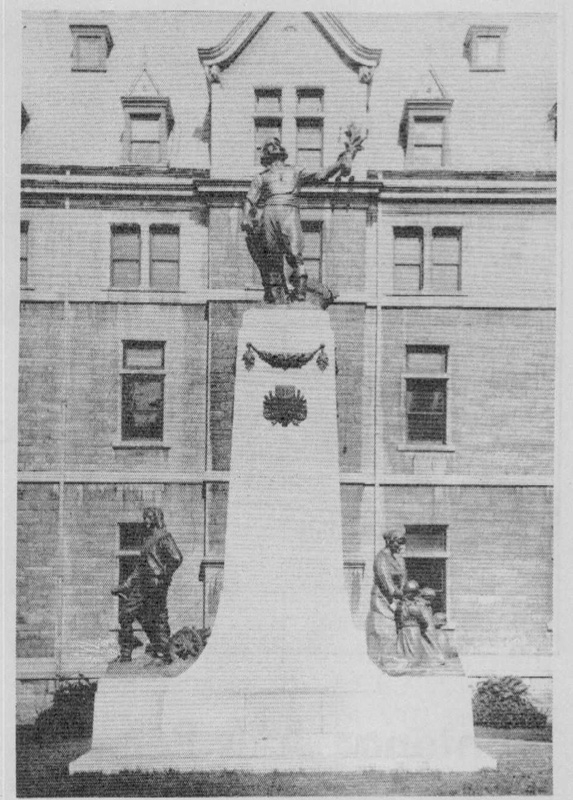
HISTORICAL EVENTS THAT TOOK PLACE ON THIS DAY IN CANADA
25 JANUARY

Monument to Louis Hébert at Québec City
Louis Hébert Dies
Canada’s first doctor is often credited with being Canada’s first farmer as well. He was Louis Hébert, who died at Québec on January 25, 1627, greatly mourned.
Louis Hébert was brought to Quebec by Champlain in 1617 to be the doctor to the new colony. Previously, in 1606, he had made a trip to Acadia as a member of Poutrincourt's expedition, and that is how he met Champlain.
Bear River, N.S., near Champlain's habitation, is named after Hébert, whose name in French is pronounced "Ay-bear." Port Hébert, on the southwest shore of Nova Scotia, is another landmark honouring the memory of this great Canadian. Across the nearby inlet is Louis Head.
Louis Hébert's father had been a physician to the Royal Court in Paris. He had attended Catherine of Medici when she was dying after instigating the Massacre of St. Bartholemew's.
It was said that she was haunted by ghosts. In any case, young Louis Hébert had seen enough of court intrigue and was glad to get as far away as possible. When he was ready to sail he did not look back, even after learning that the directors of the company backing Champlain had reduced his salary sharply.
When they arrived at Quebec, the Héberts decided quickly that they could not live in the rat-infested rubble of Lower Town, and they investigated the land at the top of the cliff. There they built what was probably the first stone home in Canada, and cultivated ten acres of land. They grew enough vegetables to support not only themselves but also many poor families. Louis Hébert may, therefore, deserve to be known as the first farmer in Canada.
His son-in-law is believed to have used the first plough in 1628. It was drawn by an ox, since horses were not used until 1647. The Indians called them "the moose from France." The first wheat is believed to have been sown in 1644.
OTHER NOTABLE EVENTS ON THIS DAY IN CANADIAN HISTORY
25 JANUARY
-1688 Plague took a heavy toll of lives at Fort Niagara.
-1791 Quebec was divided into Upper and Lower Canada by Royal proclamation. 1835 Sir Francis Bond Head was made Lieutenant-Governor of Upper Canada.
-1870 A convention of Red River rebels considered proposals from the federal government put forward by Donald A. Smith on January 19.
-1905 The Liberal government under G. W. Ross was defeated in Ontario.
-1909 Premier McBride announced a deal to bring a third transcontinental railway to British Columbia.